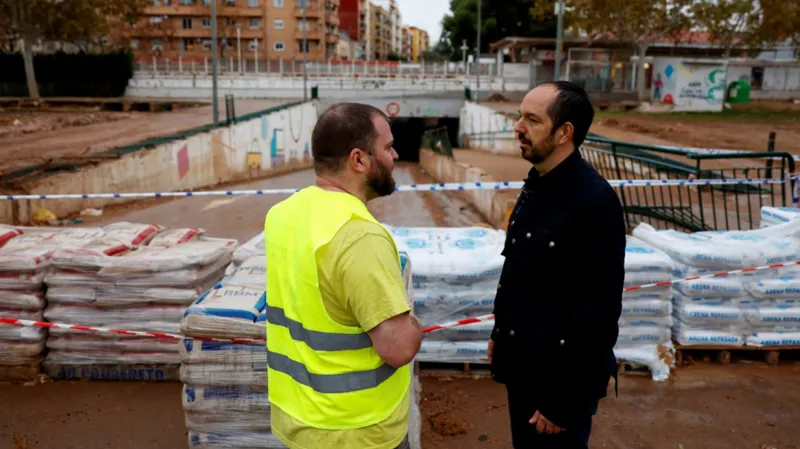
Thousands of people have been evacuated from their homes in the Costa del Sol region of southern Spain as torrential rain and flooding continue to wreak havoc across the country. The Spanish National Weather Office (Aemet) has placed Málaga and the northeastern Catalonia region under the highest alert for extreme rainfall, expected to persist until Friday. This latest weather event follows a summer of unprecedented storms and comes just weeks after flash floods in the Valencia area claimed the lives of more than 220 people.
The current storm, which is part of a weather phenomenon known as a “Dana” (an isolated depression at high altitude), has caused heavy rainfall across large swathes of southern Spain. Málaga, including popular tourist spots such as Marbella, Vélez-Málaga, and Estepona, is expected to bear the brunt of the storm. Several other regions in Spain, including the eastern part of Valencia, have also been placed on the highest alert due to the risk of flash floods.
The alert in Málaga has led to significant disruption. Schools across the entire province have been closed, and many supermarkets have been forced to shut their doors. Footage circulating on social media shows the normally bustling streets of Málaga empty as floodwaters have engulfed the city. In the nearby Guadalhorce River region, around 3,000 residents have been ordered to evacuate due to the rising threat of flooding.
Antonio Sanz, Minister of the Presidency for the Regional Government of Andalusia, explained that evacuations were targeted at specific areas close to the riverbanks, rather than entire towns. He added that the regional government had requested support from Spanish national security forces to assist with evacuations and provide aid where necessary.
The severe weather has also affected international events. The opening tie of the Billie Jean King Cup, set to take place between Spain and Poland in Málaga, was postponed due to the storm. The match was originally scheduled for Wednesday, but the ongoing weather situation forced the International Tennis Federation to make the call.
Aemet has issued an orange alert in multiple regions, including Andalusia and the Balearic Islands, indicating the likelihood of “very strong to torrential” rain and storms. While the current weather system, referred to as Dana, is less intense than the red alert issued on October 29, when flash floods in Valencia caused widespread devastation, the country is still on high alert.
In Valencia, which was hit particularly hard by the October floods, precautionary measures have been put in place. Classes and sports activities have been suspended in some areas, and local authorities have piled sandbags in strategic locations to protect key areas, such as Aldaia town center. This comes after the discovery of the bodies of two young brothers, Izan, 5, and Rubén, 3, who had been swept away in the October floods. Their bodies were recovered in separate locations along the River Pollo, about 6 kilometers from their home. The tragic incident, which saw the boys pulled from their father’s arms by the floodwaters, had devastated the local community. Their family expressed gratitude for the efforts of volunteers and recovery teams, which included professionals from Spain and Mexico.
As Spain braces for more extreme weather, the country’s meteorological agency has warned that the “last mile” of the Dana system, which causes persistent rainfall, could bring more challenges. Dana systems form when a low-pressure area becomes “cut off” from the jet stream, causing it to stagnate over a region and intensify, often leading to days of heavy rainfall. This pattern has already caused widespread disruption across Spain.
At the opening of the COP29 climate summit on Monday, Celeste Saulo, Secretary General of the World Meteorological Organization, warned that the severe flooding in Spain is a stark reminder of the growing impact of climate change. “The incredible amount of rain in Spain was a wake-up call for how much more water a warmer atmosphere can hold,” she said, underlining the growing risks posed by extreme weather events.
While the immediate focus in Spain remains on managing the floods and ensuring the safety of residents, experts are increasingly linking these devastating storms to the broader global issue of climate change. In the meantime, the country continues to face the reality of dealing with its most extreme weather in decades, with ongoing efforts to provide aid and support to the communities affected.





